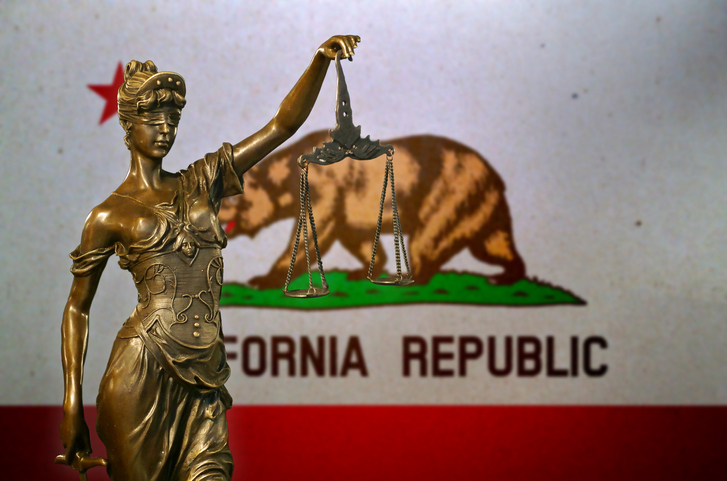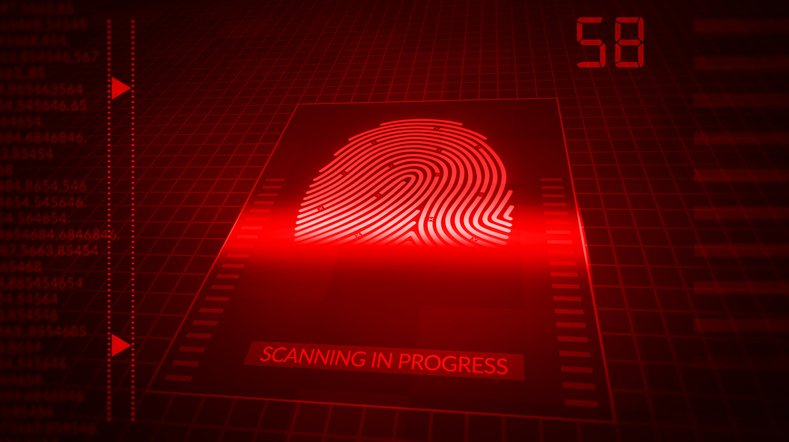 Gone are the days of the slick PI, short on scruples, with a seedy office and a leggy secretary. Today’s PIs are former cops, soldiers, officers, and more. Some are at the starting point in their careers, while others turn to private investigations after retirement.
Gone are the days of the slick PI, short on scruples, with a seedy office and a leggy secretary. Today’s PIs are former cops, soldiers, officers, and more. Some are at the starting point in their careers, while others turn to private investigations after retirement.
California’s PIs work with Fortune 500 companies to vet potential investors and business partners…with insurance companies and employers to verify on-the-job injury claims…and with private citizens that turn to PIs for requests ranging from catching a cheating spouse to finding a missing loved one.
Regardless of what jobs they take or what area they choose to specialize in, private investigators are always seeking justice. They’re assembling documents, collecting evidence, and interviewing witnesses to provide their clients with the information they need. And they’re earning themselves a reputation for being trustworthy, honest, and reliable along the way.
Orange County private investigator C.J. Ford is one of the countless PIs in California who are rehabbing the old image of the unscrupulous bottom-feeder looking for a quick buck. He has spent the better part of his career focused on wrongful conviction cases, and nearly half of his work is pro bono. Leading a small team of part-time investigators, Ford works tirelessly to prove the innocence of the wrongfully accused. Like so many PIs, investigations work was a second career for this former car salesman. He was drawn to the entrepreneurial aspect of being a PI – working for himself with no boss.
He’s not alone, either. As of 2019, the California Employment Development Department reported a total of 4,200 PIs working throughout the state. By 2021, this number is projected to increase to 4,300. But there’s little to worry about the oversaturation in a market of this size. With approximately 450 licenses expected to be issued every year to keep up with the demand, you can feel confident knowing you can build a business here without stepping on too many toes.
The California Bureau of Security and Investigative Services (BSIS) licenses private investigators in the state. Earn a PI license in California and you’ll be able to either work independently or manage a PI firm. You’ll also have the option of applying for a license that includes a firearm permit.
Now that you know the basics of what it takes to become a PI, let’s get to unravel the first step involved in knowing how to become a Private Investigator in California:
Step 1. Acquire Stipulated Experience/Education in California
The following experience, training, and education are required to entire become a private investigator in California:
- A total of 6,000 hours of paid, investigative work over a period of three years (2,000 hours a year); OR
- A total of 5,000 hours of paid, investigative work over a period of two-and-a-half years with an Associate’s degree in criminal justice, law, or police science; OR
- A total of 4,000 hours of paid investigative work over a period of two years with a bachelor’s degree in law or police science.
- Applicants for a PI license with a firearm permit must also pass an eight-hour “Power to Arrest” course and a 14-hour course on carrying and using firearms (eight classroom and six range hours).
Acceptable investigative work includes sworn law enforcement officer, military police officer, or doing investigative work under a licensed PI, attorney, repossession firm, insurance agency, or arson investigation unit.
Unacceptable work includes process server, public records researcher, or debt collector.
California’s private investigators also have the option of pursuing firearms, baton, and tear gas training through agencies approved by the California Bureau of Safety and Investigative Services.
Step 2. Get Fingerprinted in California

It is necessary to fill out a Live Scan Fingerprint Application. There is a separate Live Scan Fingerprint application form for persons who are also applying for a weapons permit. In California, it is mandatory to take care of the fingerprint requirement at one of these centers but there is a multitude of them in all counties. The city of Los Angeles alone has approximately 70 centers and there are over 35 of them within the San Diego city limits. The forms are not available online; however, you can find the Attorney General’s list of Live Scan Centers.
The standard fee is $51 for private investigators and $89 for private investigators with firearms permits. Some centers add a small, local fee. The BSIS uses fingerprints to do a criminal background check. Applicants need to retain the receipt for inclusion in the application packet.
Step 3. Obtain, Complete and Submit California’s Application Packet
Applications for a private investigator license are only accepted from U.S. citizens or legal residents who are over the age of 18.
Along with your application packet, the following documents must be included:
- Application Form
- Personal Identification Form
- Certificate in Support of Experience
- Authorization of Business Name (if applicable)
- Two Passport-Type Photos (2” X 1-1/2”)
- Firearms Qualification and Firearms Permit Application (if applicable)
- Live Scan Receipt
- Check or Money Order for $50 ($130 if requesting firearms permit)
The entire packet should be mailed to BSIS, P.O. Box 989002, West Sacramento, CA 95798-9002. They can be called at 916-322-4000.
Step 4. Take and Pass California Private Investigator Examination
Those applications that are approved will receive an examination packet from Psychological Services Industries containing a candidate handbook, study materials, and a number to call to schedule the date, time, and location of your examination.
Tests are given Monday through Saturday at any of the 13 California locations. The two-hour, multiple-choice test covers such topics as terminology, laws/regulations, civil/criminal liability, evidence handling, surveillance, etc.
Candidates will be notified if they pass the examination at which time they must submit the $175 fee to receive the license, check the licensing fees.
Step 5. Begin Working as a Licensed Private Investigator in California
Private investigators in California perform many important functions including:
- Investigating Crimes
- Investigating People (their occupations, character, marital status, etc.)
- Investigating causes of accidents, fires, injuries, or losses
- Locating lost or stolen property
- Securing evidence for use in court
Private investigators in California may protect individuals if relevant to the investigation but they may not protect property. PIs who carry a firearm must have a minimum of $1 million in liability insurance ($500,000 for a loss due to injury or death and $500,000 for losses due to the destruction of property).
Private Investigator Salary Information for California*
According to 2023 BLS stats, the average median annual salary for private investigators in California was $56,010. The real money in this state comes to those with an impressive resume and a few years of experience under their belt. The top 10% here earn a wage that starts at $100,370 annually.
To earn a license through the Bureau of Security and Investigative Services (BSIS), you’ll need to provide proof of at least three years of experience working as an investigator. The good news is that if you’ve earned a post-secondary degree in a relevant subject, you can earn your license even sooner.
You can substitute an associate’s degree in criminal justice, criminal law, or police science for a half year of experience. Or come to the table with a law degree or a bachelor’s degree in police science and you can substitute it for one year of experience.
Once you’ve met the experience/education requirement for licensure, you’ll need to pass a written exam and background checks through the Federal Bureau of Investigation (FBI) and the California Department of Justice (DOJ).
PI Salaries in Los Angeles, Fresno, San Francisco, Sacramento, Riverside, and More
The following 2023 BLS stats reveal the median to top 10% salary range for PIs working in California’s major metros:
- Bakersfield: $41,790-$65,210 (approximately 50 licensed PIs)
- Fresno: $45,430-$81,550 (approximately 80 licensed PIs)
- Los Angeles: $61,460-$100,370 (approximately 1,660 licensed PIs)
- Modesto: $51,850-$71,890 (approximately 40 licensed PIs)
- Oxnard: $44,360-$60,940 (approximately 70 licensed PIs)
- Riverside: $43,150-$72,080 (approximately 300 licensed PIs)
- Sacramento: $48,620-$86,320 (approximately 400 licensed PIs)
- San Diego: $48,810-$97,480 (approximately 300 licensed PIs)
- San Francisco: $79,960-$111,620 (approximately 550 licensed PIs)
- San Jose: $56,190-$111,320 (approximately 170 licensed PIs)
- Stockton: $57,840-$85,030 (approximately 100 licensed PIs)
- Vallejo: $54,560-$71,000 (approximately 40 licensed PIs)
- Visalia: $43,150-$61,680 (approximately 40 licensed PIs)
LA and San Francisco are some of the state’s most populated metro areas, and they also offer some of the highest median salaries, well above the state’s PI median of $56,010. This points to a trend that many already know – the best opportunities are born in the metro areas.
May 2023 US Bureau of Labor Statistics Salary and Job Market Figures for Private Detectives and Investigators reflect state data, not school-specific information. Conditions in your area may vary. Data accessed November 2024.











